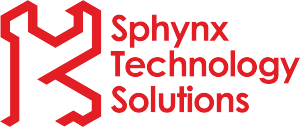Project Coordinator
Prof Dimitrios I. Fotiadis, received the Diploma degree in chemical engineering from the National Technical University of Athens, Athens, Greece, in 1985, and the Ph.D. degree in chemical engineering and materials science from the University of Minnesota, Minneapolis, in 1990. He is currently a Professor of Biomedical Engineering in the Department of Materials Science and Engineering, University of Ioannina, Ioannina, Greece, where he is also the Director of the Unit of Medical Technology and Intelligent Information Systems, and is also an Affiliated Member of Foundation for Research and Technology Hellas, Institute of Molecular Biology and Biotechnology, Dept. of Biomedical Research. He was a Visiting Researcher at the RWTH, Aachen, Germany, and the Massachusetts Institute of Technology, Boston. He has coordinated and participated in more than 200 R&D funded projects. He is the author or co-author of more than 240 papers in scientific journals, 450 papers in peer-reviewed conference proceedings, and more than 50 chapters in books. He is also the editor or co-editor of 25 books. His work has received more than 10500 citations (h-index = 52). He is a senior member of IEEE, member of IEEE Technical Committee of information Technology in Healthcare and the Editor in Chief of IEEE Journal of Biomedical and Health Informatics and Associate Editor for Computers in Biology and Medicine. His research interests include multiscale modeling of human tissues and organs, intelligent wearable/implantable devices for automated diagnosis, processing of big medical data, sensor informatics, image informatics, and bioinformatics. He is the recipient of many scientific awards including the one by the Academy of Athens.
List of Holobalance participants
PANEPISTIMIO IOANNINON
Address: University of Ioannina, Ioannina, Greece
Phone: +302651008820
Fax: +302651008889
Email: medlab.greece@gmail.com
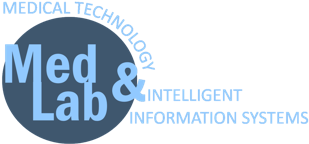
The technical work in the Holobalance project is undertaken by the Unit of Medical Technology & Intelligent Information Systems (MedLab) - http://medlab.cs.uoi.gr/. MedLab is a highly innovative and self-contained research unit that resides at the Dept. of Material Science & Engineering of the University of Ioannina. The unit is strongly activated in the fields of Biomedical Engineering and development of Intelligent Information systems. It has an internationally acknowledged excellence in conducting high quality scientific research and developing innovative Information Technology (IT) applications, products and services. Most of the Unit activities are based on international collaborations in the framework of nationally and European funded projects (FP5, FP6, FP7, Horizon 2020). MedLab’s research activities cover a variety of subjects and they are classified into the following domains: Biomedical Research, Automated Diagnosis – Processing of Biomedical Signals/Images, Development of Wearable Devices, Decision Support Systems, Bioinformatics, Multi-scale Predictive modelling, Data mining, and Big Data. The unit is co-ordinated by Prof. Dimitrios I. Fotiadis, who is Professor of Biomedical Engineering at the Dept. of Materials Science and Engineering of the University of Ioannina and staffed with qualified scientists, researchers and other IT personnel. Prof. Fotiadis is the Holobalance project coordinator.
The University of Ioannina (www.uoi.gr/en) was founded in 1964 in Ioannina, Epirus, in the North Western part of Greece. Today the University has 17 departments with over 500 faculty members, 13,500 undergraduate students and more than 3,000 graduate students (MSc and PhD). The University has established a quality management system that is in conformance with the International Management System Standard ISO 9001:2000, as well as the Greek Management Efficiency Standard, with a scope of “Project Management of Research and Development of Technological and Other Related Programs and Activities”.
Most relevant to the current project is the, recently completed, PD_manager project in which UOI’s role was dual as it has contributed to the implementation of the system’s intelligence and has acted as user for the system pilots. A large number of publications on computational intelligence applications on PD remote monitoring, assessment of symptoms at home and management of the disease were produced.
HEARTEN http://www.hearten.eu/
TAXINOMISIS: https://taxinomisis-project.eu
PD_MANAGER: http://www.parkinson-manager.eu/
SMARTOOL: http://www.smartool.eu/
KARDIATOOL: http://www.kardiatool.eu/
Most relevant to the current project is the, recently completed, PD_manager project in which UOI’s role was dual as it has contributed to the implementation of the system’s intelligence and has acted as user for the system pilots. A large number of publications on computational intelligence applications on PD remote monitoring, assessment of symptoms at home and management of the disease were produced.
UNIVERSITY COLLEGE LONDON
Address: UCL Ear Institute 332 Grays Inn Road Kings Cross, London WC1E 8EE United Kingdom
Phone: +44 20 3456 5341
Email: d.bamiou@ucl.ac.uk
Website: https://www.ucl.ac.uk/ear/
https://iris.ucl.ac.uk/iris/browse/profile?upi=DEBAM22
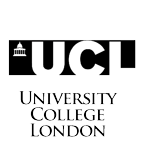
University College London is London's leading multidisciplinary university, with more than 13,000 staff and 38,000 students from 150 different countries. Founded in 1826 in the heart of London, UCL was the first university in England to welcome students of any religion and the first to welcome women on equal terms with men. UCL is one of the world’s leading multi-disciplinary universities. We operate in a global context and are committed to excellence, innovation and the promotion of global understanding in all our activities: research, teaching, learning, enterprise and community engagement. UCL is the top-rated university in the UK for research strength in the Research Excellence Framework (REF), published in December 2014, by a measure of average research score multiplied by staff numbers submitted. The UCL Ear Institute brings together academics and clinicians whose work aims to understand hearing and fight deafness. World-leading academics and surgeons, working in fields as diverse as human genetics, biophysics, computational neuroscience, cell biology and human cognition, come together to create a genuinely collaborative research environment. RAND analysis shows that UCL has the most influential researchers in hearing and deafness in England.
EVOTION (EU funded Horizon 2020 project: http://h2020evotion.eu/EMBalance (EU funded FP7 project): http://www.embalance.eu/
From Sound Encoding To Perception And Good Listening: A Concurrent Behavioural &
Electrophysiological Test Approach For Auditory Processing Disorders.
Hearing And Rehabilitation needs of the Stroke population - HEARS
Speech evoked Auditory Brainstem Responses: applicability in the assessment of Auditory
Processing Disorders, correlations with symptoms and behavioural speech in noise tests
Study of free walking and dual tasking in patients with a peripheral vestibular disorder.
UNIVERSITAETSKLINIKUM FREIBURG
Address: Hugstetter Strasse 49, 79106 , Freiburg, Germany
Phone: 0761 270-0
Website: http://www.uniklinik-freiburg.de/ip/splash/start.html
Email: info@uniklinik-freiburg.de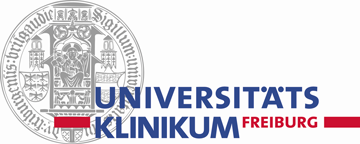
The University of Freiburg (UKLFR) Medical Center has a long and rich history. Some of the most famous doctors in the world have worked here, five of which were Nobel Prize winners for achievements in medical science. The medical faculty of the medical center can be traced back to 1457, thus making it one of the oldest and most distinguished faculties in Germany. The Freiburg University Medical Center is part of the Albert Ludwigs University Freiburg, which has been recognized in 2007 as one of five outstanding centers of academic excellence in Germany. The University Medical Center Freiburg offers ready access to world-class medical treatment. It focuses on novel diagnostic procedures and treatments and applies the latest findings in clinical and biomedical research.
The Department of Neurology is located in the Neurozentrum of the Medical Faculty. About 2,900 people undergo treatment in the Department of Neurology on an in-patient basis, and another 10,000 on an out-patient basis every year. The patients are people who have suffered from a dysfunction of the motor apparatus, stroke, epilepsy, multiple sclerosis, polyneuropathy, dementia, headaches, Parkinson’s disease, and other movement disorders, as well as patients with rare neuropathological diseases. One of our clinic’s fields of expertise is neurophysiology which researches the electronic signals of the brain and nerves and the use of modern brain imaging (MRI and PET) to assess restorative capabilities of the brain for neurorehabilitation. Many test protocols were developed and standardized in Freiburg. A key research topic in the sensorimotor field is human posture control, its modelling, and re-embodiment’ into biped robots for ‘hardware in the loop’ simulations of normal balance functions as well as impairments in neurological patients.
The posture control research has a long tradition in the department. It disposes of a laboratory with a custom-made 6-D motion platform, pulling devices (contact force stimuli), visual motion stimuli, and kinematic and kinetic measurement devices. The control of the experiments, data acquisition and data analyses are performed with custom-made software. Furthermore, the laboratory comprises two custom-made posture control robots (PostuRob I, 1 DoF, ankle joints; PostuRob II, 2 DoF, ankle and hip joints). The laboratory including the motion platform and the robots were developed and build by the Neurocenter’s electronic and mechanical workshops. The postural control laboratory has developed over the last decade a model of human balancing control and implemented it into the robot for direct comparison with healthy humans and patients in the posture control laboratory.
Since 2008, the University Medical Center Freiburg has been participating in 70 research projects funded under the 4 Specific Programmes of the 7th Framework Research Programme, the 2nd Programme on Community Action in the Field of Health, DPIP, INTERREG IV Oberrhein, COST, Eurostars, ERA-NET (NEURON; ERARE).
BioIRC d.o.o. Kragujevac
E-mail: bioirc@kg.ac.rs
Website: www.bioirc.ac.rs
Phone: +381 34 500088

BioIRC is a research and development center devoted to the development of computational methods and software for various problems in engineering and bioengineering. The research is largely based on the finite element method applied to solids, fluids, modeling of physical fields, multiphysics, and various coupled problems. Also, discrete particle methods, such as dissipative particle dynamics, are developed and coupled to continuum models in multiscale schemes. The solvers are accompanied by state-of-the art computer graphics as well as image processing methods and 3D medical image reconstructions.
BioIRC leads or participates in national and international (EU and USA) scientific and research projects, such as development of methods and software for patient specific modeling of blood flow and plaque growth – integrating clinical recording with computer modeling into a multilevel computer system for practical implementations; microcirculation related to nanomedicine; nanocoating; groundwater flow and optimal design of Ranney wells for large water supply systems.
SIFEM Project (FP7-ICT-2011-9): Semantic Infostructure interlinking an open source Finite Element tool and libraries with a model repository for the multi-scale Modelling and 3d visualization of the inner-ear: http://www.bioirc.ac.rs/index.php/projects-references?id=53
EMBalance (FP7-ICT-2013-10): A Decision Support System incorporating a validated patient-specific, multi-scale Balance Hypermodel towards early diagnostic Evaluation and efficient Management plan formulation of Balance Disorders: http://www.bioirc.ac.rs/index.php/projects-references?id=55
Augment reality interactive Bioengineering Book:
This is small project from augment reality. We used Vuforia SDk support and Unity 3D Engine. We created application for augment reality for Bioengineering book for our PhD students.
Software uses algorithms for object recognition from the book (image registration) and it creates positions for prescribed virtual model on the page. It is processing is the real time.
ETHNIKO KAI KAPODISTRIAKO PANEPISTIMIO ATHINON
Address: Vas. Sofias 114, 11527, Athens, Greece
Phone: (+30)2132088000, (+30)2132088030
Email: ampimpas@med.uoa.gr
Website: www.entuoa.gr
The National and Kapodistrian University of Athens was founded in 1837. It is the largest public institution of higher education in Greece, and among the largest universities in Europe. It is a legal entity of public law with 32 Faculties and 111 Postgraduate programmes of all disciplines, 158 Laboratories, 69 Clinics (included in 4 University Hospitals), 6 Central Libraries. The 1st University Department of Otolaryngology (AORL) was established in 1939 at the Hippokrateio Hospital in Athens, and is the largest Otolaryngology Department in the country. It provides clinical services for all major subspecialties including Otology & Neurotologic surgery, Audiology, Head & Neck Oncology, Lateral Skull Base Surgery, Rhinology and Laryngology. It is also one of the Cochlear Implant Centres in Athens. In particular, the Audio-Vestibular Laboratory is one of the most prestigious in the country and is focused in the assessment of hearing and balance using the latest technology in audiological and vestibular research, including posturography, videonystagmography, psychoacoustic tuning curves, electrophysiological testing of hearing, otoacoustic emissions for assessment of the cochlear function and vestibular evoked myogenic potentials for the assessment of the balance organ. Multidisciplinary approach is provided, including vestibular rehabilitation. More than 1,000 patients are examined annually The AORL department has one of the most competitive postgraduate surgical training programs, with 15 surgical Residents. It is responsible for the undergraduate training program of Medical and Dental Students of the National & Kapodistrian University of Athens (http://eclass.uoa.gr/courses/MED332/). The AORL department is actively involved in clinical and basic science research and has published over 130 scientific papers in international peer-reviewed journals over the last 5 years. Moreover, it is actively involved in two FP7 and two Horizon 2020 research programs.
REGAIN (EU funded Horizon 2020 project): http://www.regainyourhearing.eu/
EVOTION (EU funded Horizon 2020 project: http://h2020evotion.eu/
SIFEM (EU funded FP7 project): http://www.sifemproject.eu/
EMBalance (EU funded FP7 project): http://www.embalance.eu/
TINNET (EU funded COST action): http://tinnet.tinnitusresearch.net
INSTITUTE OF COMMUNICATION AND COMPUTER SYSTEMS
Phone: (+30) 210 7722489
Fax: (+30) 210 7722490
website: www.iccs.gr/en/

The Institute of Communication and Computer Systems (ICCS) is a non-profit private law body associated with the School of Electrical and Computer Engineering (ECE) of the National Technical University of Athens (NTUA), the oldest and most prestigious educational institution of Greece in the field of technology. ICCS was established in 1989 by the Ministry of Education of Greece in order to promote research and development activity in all diverse aspects of computer and telecommunications systems and their applications. Over these last years, ICCS has gained a European wide reputation in the field of telematics and healthcare services. So far, the scientists of the BEL, laboratory of ICCS have authored or co-authored about 200 referred papers in these research areas. The Biomedical Engineering Laboratory (BEL) is established in the School of Electrical and Computer Engineering (ECE) of the National Technical University of Athens (NTUA). In 2018 it has completed twenty-eight years of scientific activity. Since 2001, it constitutes an officially founded laboratory, aiming at serving educational and research needs in the field of Biomedical Engineering and its applications. The activities of BEL cover sectors that are related with basic and applied research in specialized subjects of biomedical technology. More specifically, the main research areas of BEL's expertise include: Medical Data Management Systems, Medical Informatics, Telemedicine, Ultrasound Technology, Biorheology - Clinical Hemorheology, Neural Networks in Medicine and Healthcare, Biosensors, Virtual Reality in Medicine and Healthcare, Radiation-Tissue Interaction, as well as Biosignal and Medical Image Processing. BEL also has sound experience in using Decision Support Systems based on Neural Networks, signal processing and data fusion algorithms, but also SOA Architecture, Web services and Interoperability Standards. Other R&D activity of the lab is in the areas of Home Care Systems and AAL Environments, m-Health applications, Robotics, Rehabilitation Treatment and e-Learning applications. In terms of its wider dynamic research activity, BEL has developed close collaborations with a large number of Greek and International academic institutions, industry bodies and Health Organizations. BEL also participates in an important number of research projects in national and international level. At an institutional level, BEL was one of the founders of HL7 Hellas and Hellenic Society for Biomedical Technology (ELEVIT). For ICT development in the healthcare and biomedical field the BEL-ICCS holds or have access to equipments such as appropriate software platforms and programs packages (C++, Matlab, Labview, SQL Server 2000, VREALM BUILDER, etc.); videos systems (cameras : SVHS, Connectix B/W, colour USB, colour IP; video digitisation card ; 3D motion analysis system: VICON) ; an integrated telemedicine system, as well as a mobile telemedicine device; a virtual reality applications equipment (1 PC card with two position sensors Polhemus InsideTRAK Card, 1 3D Joystick CyberStick, 1 5th Glove, 3 (HMD) Casques: Cyber Eye, HhhhVirtual i-Glasses US and Visuality) ; various device for biomedical applications
Go-myLife (EU AAL, 2010-13)
Kinoptim (EU MSCA, 2013-17)
EMBalance
Prophetic (H2020 MSCA-RISE-014)
SIFEM (FP7-ICT-2011)
Aladdin (AAL-2008-1)
Evotion
MyMATE
PROPHETIC : An innovating personal healthcare service for a holistic remote management and treatment of Parkinson's patients.
KING'S COLLEGE LONDON
Address: Guy’s Campus, Shepherd’s House, London SE1 1UL; Institute of Psychiatry, Psychology & Neuroscience,16 De Crespigny Park, London SE5 8AF
Phone: ++ 44 (0) 207 848 6328
Email: marousa.pavlou@kcl.ac.uk
Website: www.kcl.ac.uk
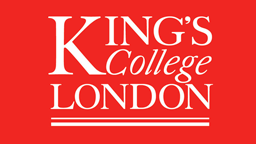
King’s College London is rated among the world’s top 21 universities in the 2016-17 QS World University Rankings and is ranked 11th in the world for its international performance and outlook in the 2017 Times Higher Education report. It is among the top seven UK universities for research earnings and has an overall annual income of £684 million. In the 2014 Research Excellence Framwork (REF) over 84% of King’s research was rated 4* or 3* meaning it is regarded as ‘world-leading’ or ‘internationally excellent’ and it achieved 6th position nationally in the ‘power’ ranking which considers both the quality and the quantity of research activity. The university is one of one of the most successful higher education institutions in attracting funding from the Department of Health and the National Institute for Health Research and is the only UK University to have six prestigious Medical Research Council centres: more than any other UK university. It is also a member of Global Medical Excellence Cluster and with King’s Health Partners is one of the UK’s five Academic Health Sciences Centres which brings world leading research led university (King’s College London) and three successful National Health Service Foundation Trusts (Guy’s and St Thomas’, King’s College Hospital and South London and Maudsley).
Projects Professor Robert Stewart has been awarded more than 35 research grants in the last 5 years. Below is a selection of these awards.
MRC - Medical Research Council (2018-2020): King’s Mental Health Data Pathfinder award.
NIHR – National Institute of Health Research (2016-2021): Project U-Care.
EC- European Commission (2015-2017): KConnect. https://cordis.europa.eu/project/rcn/194242_en.html
Medical Research Council (MRC) (2014-2016): Immuno-psychiatry: a consortium to test the opportunity for immunotherapeutics in psychiatry.
Academy of Medical Sciences (2014-2020): Physical health inequalities in ethnic minority service users with serious mental illness: understanding pathways to reduced life expectancy.
EC - European Commission (2014-2016): Computing Varacity Accross Media, Languages and Social Networks – PHEME. https://cordis.europa.eu/project/rcn/191627_en.html
Psychiatry Research Trust (2014-2016): The long-term clinical effectiveness of a community, one day, self referral CBT workshop to improve insomnia: a 4 year follow-up.
EC - European Commission (2013-2017): EUROPEAN MEDICAL INFORMATION FRAMEWORK – EMIF. http://www.emif.eu/
NIHR - National Institute for Health Research (2012-2017): Towards an evidence-based clinical management of visual hallucinations: prevalence, prognosis, impact and pathophysiology.
NIHR - National Institute for Health Research (2012-2017): Biomedical Research Centre for Mental Health - EPI Cluster - Clinical and Population informatics.
Dr Marousa Pavlou
VeRMIS (www.mssociety.org.uk) – (Multiple Sclerosis Society)
Educational video guides for adults with dizzy spells (Dr Pavlou speaks about vestibualr rehabilitation http://www.p-cns.org.uk/videoguides.asp
What is visual vertigo? Podcast with Dr Pavlou and Dr Jeffrey Staab, organised by the Vestibular Rehabilitation special interest group, Academy of Neurological Physical Therapy http://www.neuropt.org/podcasts/visual-vertigo-during-vrt-and-treatment.mp3
UNIVERSITAET HAMBURG
Address: Vogt-Kölln-Str. 30, 22527 Hamburg, Germany
Website: www.inf.uni-hamburg.de/en/inst/ab/hci.html
Email: mostajeran@informatik.uni-hamburg.de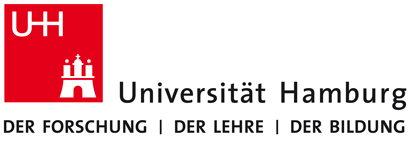
HCI at the University of Hamburg is an interdisciplinary teaching and research group that deals with different aspects of analysis, design, engineering, and evaluation of human and task-oriented applications in the context of digital media. A particular focus of our group is on natural user interfaces for the challenging interaction in which the (often two-dimensional) virtual, digital world grabs our (mostly three-dimensional) real, physical world. The limitations of human information processing can be exploited during interaction in such scenarios through perceptions-based illusions to compensate for user weaknesses and support strengths. This allows people to interact in computer simulations of real or fictional environments, without having to consider real-world risks and limitations. Applications for these technologies are traditionally found in the areas of simulation, education, training, rehabilitation, and research.
SFB/Transregio 169: Crossmodal Learning: Adaptivity, Prediction & Interaction: Project C06: Crossmodal Tele-Operation: https://www.crossmodal-learning.org/en/home/about.html
DFG Research Grant: Interactive Locomotion User Interfaces for Real Walking in VEs (iLUI): https://www.inf.uni-hamburg.de/en/inst/ab/hci/projects/cognitive-demands-of-redirected-walking.html
IFB Hamburg iPlanB: https://www.inf.uni-hamburg.de/en/inst/ab/hci/projects/iplanb.html
Twitter: @uhhhci
Youtube: www.youtube.com/channel/UCzSuogdqRyN8YWFDyccFrzw
Age Concern London
Address: 6th Floor, Tavis House, 1 – 6 Tavistock Square, London WC1H 9NA, UK
Phone: +44 (0)20 7820 6770
Email: stynan@ageuklondon.org.uk
Website: www.ageuklondon.org.uk

Age UK London helps London to love later life by campaigning for older Londoners, working on their behalf, and championing their cause. Over 2 million older people (those aged over 50) live in the capital city and we work with London borough Age UKs and over 500 older people’s groups and organisations to improve the quality of life and enhance the status and influence of older people in London. We promote and represent the views of older Londoners both through our Londonwide programmes and through our campaigning and communications work.
Everything we do is based on expert knowledge and real experience and we engage with politicians and decision-makers, as well as a wide number of voluntary, statutory and private organisations. We identify and give voice to issues that affect older people via research, forums and Age UK partners and we campaign on real issues that make a difference to older people. We campaign against cuts to older people’s services and fight for the right to “heat and eat” as well as campaigning for better London transport and to protect the Freedom Pass. We campaign to end the scandal of malnutrition for older people in hospital and we promote healthy ageing, independent living and better community engagement. We promote and disseminate new ways of working and provide wide-ranging guidance and support.
MiCommunity: https://vimeo.com/42773892
‘The Way Ahead’
HOMECARE: https://www.facebook.com/accenture/videos/10159716457245374/
Age UK London’s Blog: www.ageuklondonblog.org.uk
Twitter: @ageuklondon
Facebook: www.facebook.com/AgeUKLondon
LinkedIn:www.linkedin.com/company/age-uk-london
Video:
- Micommunity: https://vimeo.com/42773892
- HOMECARE Amazon Echo Show:/www.facebook.com/accenture/videos/10159716457245374/
Sphynx Technology Solutions AG
Address: Gubelstr. 12, Zug
Canton of Zug, 6300 Switzerland
Email: info@sphynx.ch
Website: www.sphynx.ch
Sphynx Technology Solutions AG is a company established in Zug, Switzerland. SPHYNX offers customizable software solutions and consulting services in the areas of cyber security assurance and certification, and large-scale data analytics. More specifically, SPHYNX has developed and markets two software solutions:
-A security assurance and certification platform. This platform enables clients to realize security assessments, based on industrial and international standards (e.g., cloud, network, smart metering standards), through the use of tool supported continuous monitoring and testing. The solution makes use of industrial strength tools including vulnerability and penetration testing tools, and open source solutions such as the CUMULUS certification framework. Furthermore, it enables the configuration of security assessment, reporting and certification to the needs of different stakeholders ranging from senior management to external auditors and regulators.
-A data analytics and intelligence solution capable of performing real-time analytics on static and live, steaming data. The solution supports end-to-end analytics covering data pre-processing, cleaning, and a battery of statistical analysis and data mining algorithms. The offering can be customized to data analysis needs of different customers, through a model driven approach, where analytics are defined through high level goal/objectives driven analytics models and is scalable due to the use of underlying no SQL big data repository technology. Current customized forms of the platform support short and long term large scale clinical studies.
Customized forms of the above solutions have been developed for customers of SPHYNX in the telecoms and healthcare sectors.
HOLOBALANCE (H2020 project, 1/12/2017 – 30/11/2020)
SEMIOTICS (H2020 project, 1/1/2018 – 31/12/2020)
THREAT ARREST (H2020 project, subject to contract)
RESIST (H2020 project, subject to contract)
EIPIX ENTERTAINMENT DOO NOVI SAD
Address: Partizanska 18, Novi Sad, Serbia
Phone: +381 63 686 302
Contact: office@eipix.com
Website: www.eipix.com
The design of the cognitive game within the Holobalance project is undertaken by Eipix Entertainment, a game development company from Novi Sad, Serbia. Established in 2007, over the past decade the company has grown to become one of the leading game developer’s in the Eastern European region, developing a large number of diverse games published both independently and in collaboration with publishers from Europe, Israel, USA and China.
Eipix’s expertise lies in the domain of designing games and gamified applications for various platforms, such as PC, MAC, iOS, Android and various VR technologies. The company employs a broad range of industry specialists, from programmers to artists, capable of handling the full development cycle in-house, while its proven track record of reliability and commitment to the highest standards of quality have made Eipix a prefered partner for large companies across multiple continents.
Aside from its operations in the field of commercial games, the company collaborates with a number of national faculties, particularly in the active implementation and integration of research project outcomes and their piloting in the game context. Eipix is always interested in exploring emerging and pioneering technologies, just recently developing a voice-controlled game for Amazon Alexa devices. The company has also fully embraced VR, focusing not only on commercial products, but also using the technology for educational and medicinal purposes. Possessing all the resources and the know-how to tackle even the most demanding projects, Eipix prides itself on its commitment to creating engaging, fulfilling experiences and improving the way people interact with technology.
Chronicles of the Overworld – COTOW: https://eacea.ec.europa.eu/sites/eacea-site/files/results_video_games_2016.pdf
Lightstep Chronicles: http://lightstepchronicles.com/the-game/
Althora - http://eipix.com/games/althora/
Creating Worlds: http://www.innovationfund.rs/mini-grants-awardees-fourth-call/
Facebook: www.facebook.com/eipix
Twitter: twitter.com/eipix
LinkedIn: www.linkedin.com/company/eipix-entertainment
Instagram: www.instagram.com/eipix_entertainment
EIPIX General Promo Movie
Quantitas srl
Address: VEGA - Parco Scientifico Tecnologico di Venezia, Via delle Industrie 15
Email: info@quantitas.it
Website: www.quantitas.it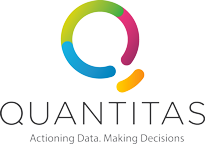
Quantitas is a tech start-up, incubated at VEGA Technology Science Park in Venice, and its mission is to develop and offer businesses services and products related to the entire data management chain.
Quantitas acquires processes and models data, producing information immediately interpretable and usable by company management.
Quantitas was created to develop decision support systems in highly complex contexts, designing tools and setting itself the challenge to implement methodologies for collection, analysis, visualisation and dissemination of information. As an innovative start-up, QUANTITAS invests a substantial part of its work in research by promoting exploration and development initiatives in the Big Data industry.
Twitter: @QuantitasSrl
Facebook: https://www.facebook.com/quantitas.it/
LinkedIn: https://it.linkedin.com/company/quantitas-srl
ROESSINGH RESEARCH AND DEVELOPMENT BV
Address: Roessinghsbleekweg 33b,7522 AH Enschede, the Netherlands
Phone: +31 (0)88 0875 777
Email: h.opdenakker@rrd.nl
Website: www.rrd.nl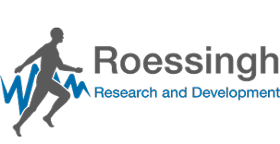
RRD is the biggest centre in the Netherlands where a wide range of disciplines such as rehabilitation medicine, movement sciences, psychology, physiotherapy, biomedical sciences and computer sciences work together under a single roof on current and future innovations in rehabilitation and chronic care. As an internationally recognised scientific research institute, RRD occupies a unique position between the university and healthcare practice.
With our combined knowledge of healthcare practice, human movement and applied technology, we can guide the development of telemedicine services and rehabilitation technology in such a way that they are effective and pleasant to use as well as satisfying the requirements and wishes of both the healthcare professional and the patient.
Council of Coaches (www.council-of-coaches.eu) – (Horizon 2020)
GOAL (www.goal-h2020.eu) – (Horizon 2020)
FRAIL (www.frail-project.eu) – Eurostars
VIREP (www.virep.eu) – EURegio
XOSoft (www.xosoft.eu) – Horizon 2020







